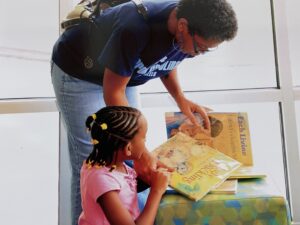
Tiffany Cannon and her family were getting dressed to head out when she received a hypercritical comment from her grandmother. She suggested to Cannon that she tuck her son’s shirt in based on the many perceptions of African Americans.
“I’m not tucking his shirt in to make him look a certain way,” she said. “He was only 2 years old.”
Many conversations have surfaced within Black communities and families about social injustice in America and police brutality. The growing number of protests around the world regarding the Black Lives Matter movement has brought questions to our youth as protests have been publicized through social media and news outlets.
Kids have become more engaged on social media so there is no way to hide the unconstitutional occurrences in modern day society.
Cannon, a mother of two African American boys, 11 and 16, and a 4-year-old girl, says with her sons being on social media, they are exposed to some of the uncut videos, but her 11-year-old son chooses not to watch them.
Cannon comes from a diverse family with a mixture of African Americans, white Americans and Filipinos, which led her kids to question cultural differences earlier than usual.
“As early as possible, the better and the more you talk about it, then they do understand it,” said Cannon.
Her husband, Harold Cannon Jr., took the time to educate their boys growing up with books and watching documentaries concerning African American history.
The Cannons also introduced to their kids African American figures who are not always talked about during Black History Month.
“We try to make them learn about someone they’ve never heard about or if they do know about the person, we try to pinpoint the things that are not really spoken of in the history books or in class,” she said.
Among Black students, those with lower self-rated well-being and higher levels of mental health symptoms reported less school bonding, a greater number of suspensions, and a higher likelihood of being retained a grade, according to the National Association of School Psychologists.
Allen Pope, the district lead school psychologist in Orangeburg County School District in South Carolina, said he believes it is important to introduce cultural differences to kids as early as age 2 or 3 because that’s when kids can start identifying things such as colors.
“Self-concept goes hand in hand with what is currently going on today. We as African Americans must have a strong self-concept of ourselves and of our backgrounds,” Pope said.
“Sometimes folks don’t have a solid foundation in the five areas of reading, which can withhold them from fully understanding what is going on and what they are reading.”
Reading has five areas: phonics, phonemic awareness, vocabulary, fluency and comprehension.
Roniqua Topkins-Melvin, mother of a 7-year-old African American boy, hasn’t given her son the full explanation in its entirety about the protests and police brutality because she doesn’t want him to become biased and would like him to make his own decisions on things.
“I don’t think the conversation should be based on age specifically. It should be based on your child’s level of awareness,” Melvin said.
Melvin has regular conversations with her son about what he is learning in school and makes sure he comprehends everything correctly. They continue to enhance his learning behavior by reading different books and watching films to strengthen his knowledge.
“For any parent, we all care about our children, but as the mother of an African American male child it is imperative that I am vigilant and aware of the circumstances because we may love him to death but the world may not treat you that way,” she said.